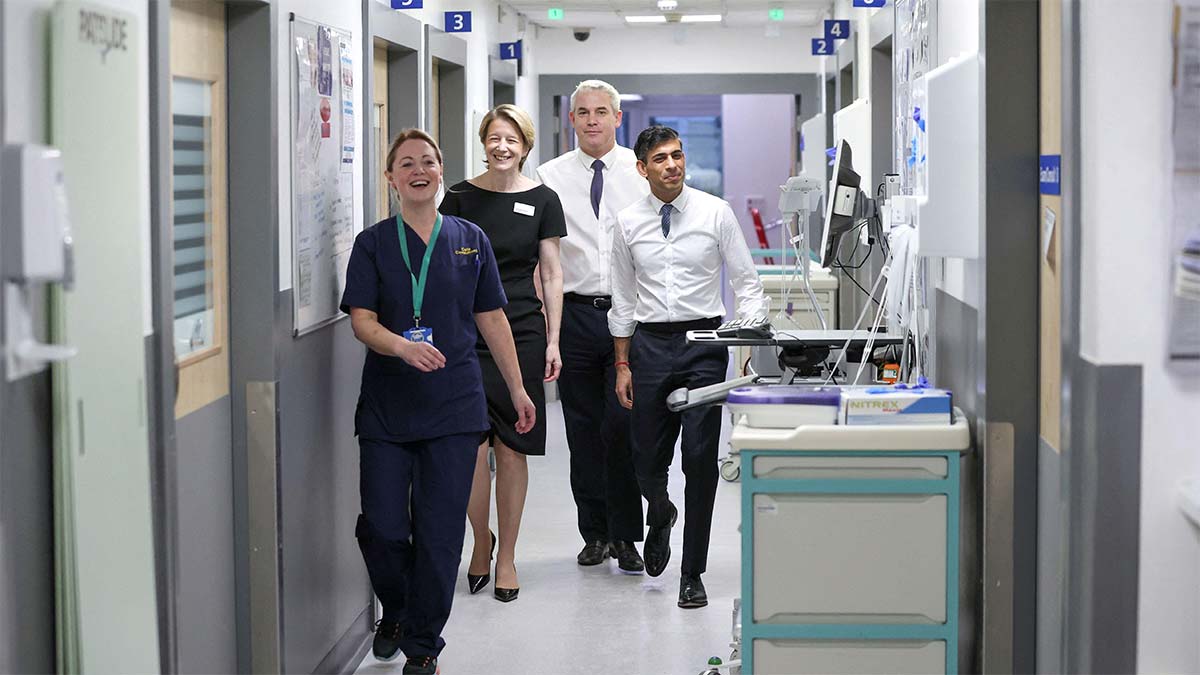London (Parliament Politic Magazine) – A comprehensive workforce plan by NHS England is set to address the shortage of doctors and nurses by increasing training opportunities and creating thousands of new roles. This ambitious plan includes doubling university places for medical students, introducing a new apprenticeship scheme for doctors, and potentially shortening medical degrees.
Prime Minister Rishi Sunak hailed this delayed plan as historic, emphasizing the time and effort invested in its development. However, critics express concerns that the plan may be undermined by the poor working conditions within the NHS.
Currently, there are over 110,000 vacancies in the NHS workforce, with one in ten positions remaining unfilled. This shortage places immense pressure on existing staff and adversely affects the quality of patient care.
The NHS has faced strikes throughout the year, and the ongoing dispute with doctors remains unresolved. Notably, the workforce plan does not address staff pay but instead focuses on expanding training opportunities for medical and nursing students. Additionally, a new scheme will enable trainee doctors to earn while they learn.
Maximizing Healthcare Resources: UK To Shape Strategy to Train More NHS Workers
Furthermore, a consultation will be launched to explore the possibility of shortening the duration of medical degrees from five to four years. By implementing these measures, the NHS aims to alleviate the workforce shortage and improve the overall quality of healthcare.
The opposition’s plan has been criticized by Shadow Health Secretary Wes Streeting, who also expressed his disappointment with the delay in its publication.
The lack of a workforce plan over the past 13 years is the underlying reason for the NHS’s understaffing, Streeting emphasized. The Liberal Democrats have voiced their concern that the plan has arrived too late for the millions of individuals who have endured pain or lost their lives while waiting for treatment in hospital corridors.
Furthermore, the Nuffield Trust think tank has issued a warning about the current bleak reality of working in the NHS, which could ultimately hinder efforts to address staff shortages in the long run. Dr. Billy Palmer has raised the concern that by continuously increasing the number of individuals entering training programs, we may inadvertently exhaust them at an even faster rate.
NHS Aims To Hire Qualified Staff Members
The role of a nursing associate serves as a vital link between healthcare assistants and nurses, while physician associates provide valuable assistance to doctors in diagnosing and managing patients. These professionals can be found working in GP surgeries or hospitals.
The introduction of these new roles will result in a greater number of qualified staff members being able to dedicate more time to their patients, enhancing the overall quality of care provided.
Furthermore, there has been a significant increase in the availability of training opportunities for other healthcare roles, such as pharmacists, psychologists, and dental therapists.
Over the next five years, the proportion of NHS staff, including physiotherapists, podiatrists, and maternity staff, who have received their training through apprenticeships will double, accounting for one out of every six staff members. Apprenticeships offer a unique combination of paid work and study, without the burden of tuition fees.
Additionally, plans are underway to launch an apprenticeship program for doctors next year, with a few hundred places available. This initiative aims to further diversify the training pathways for medical professionals.
UK Health Industry To Undergo Significant Changes
The healthcare industry is set to undergo significant changes with the implementation of a new plan aimed at addressing the challenges of retention and career development. This plan has been well-received by various stakeholders, including Matthew Taylor from the NHS Confederation, who commended its bold and ambitious nature.
However, it is crucial to extend this commitment to the social care workforce as well. Additionally, concerns have been raised regarding the availability of front-line placements for student nurses, which could potentially hinder the drive to increase training places. Furthermore,
It is important to understand that the impact of this expansion on current shortages will not be immediate, as it takes several years to complete medical and nursing degrees. This is crucial to acknowledge that the impact of this expansion on current shortages will not be immediate, as the completion of medical and nursing degrees requires several years of dedicated study and training.

